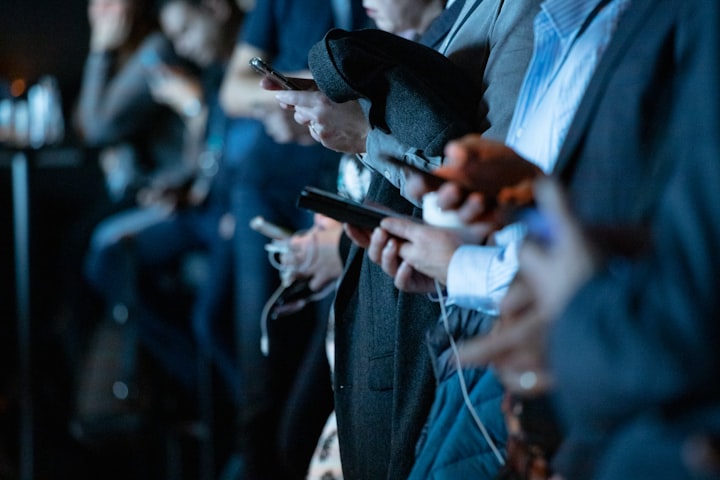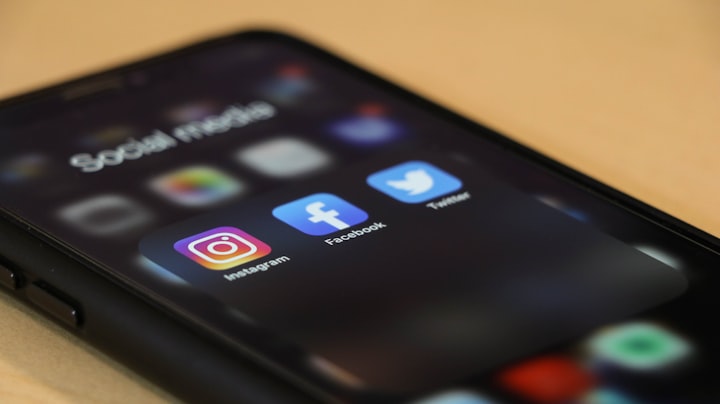Has social media driven political polarization and does information cause political polarization?
Has the rise of social media contributed to political polarization in society, and do political posts on social media cause people to become polarized?

You're wrong if you think social media is causing political polarization. Social media plays a role, but you cannot directly link it to political polarization. Political polarization refers to the division of political ideals and goals within a population. Social media was a fairly new phenomenon when this became an issue in recent years.
There are many factors that can be attributed to the rise of political polarization in recent history and some are discussed below.
How social media is driving polarization
The political polarization in the US has been a concern for decades but social media is driving this polarization. The Pew Research Center conducted a survey of American adults and found that Americans are more divided than ever on issues such as abortion, immigration, race and homosexuality. The report found that some of the biggest divides have been fueled by social media.
For instance, more than half of Democrats use social media to get their news compared to only 16 percent of Republicans. The report also showed that Republicans were more likely to be influenced by their friends' posts on social media than Democrats did. The report stated, "Republicans are more likely than Democrats to say they follow public figures or elected officials on social media (68% vs.
42%) and to say they regularly see posts from these people on their news feeds (46% vs. 23%). Republicans also tend to follow political organizations and campaigns more so than Democrats do (64% vs. 44%)." This means that Republicans are consuming more partisan news sources than Democrats do because they are being exposed to it more frequently through their friends' posts on Facebook or Twitter.
What political polarization looks like in the u.s.?
Social media is driving political polarization. Social media has given people a platform to express their political beliefs and opinions. This has given rise to the idea of echo chambers where users only interact with people who share their views, which has resulted in a more polarized society. What political polarization looks like in the u.s.? Polarization refers to the separation between two extreme positions on an issue or topic.
In the U.S., there is a lot of talk about how much our country has become politically divided. The term “red state” and “blue state” was coined by journalist Ron Brownstein in 2001 to describe the political divide between Republicans and Democrats in the U.S., which was becoming increasingly evident during elections at that time (Brownstein).
Since then, the divide has only grown stronger with each passing year leading up to today where we have a President who speaks openly about his distaste for political correctness and pushes policies that are not popular among his opponents such as restricting immigration from certain countries or banning transgender people from serving in the military (Borchers).
How can we shift perceptions?
Social media has become one of the most important sources of news for young people. According to a recent report by the Pew Research Center, more than half of U.S. adults say they get their news from social media, and among 18- to 29-year-olds, that figure rises to 72 percent.
The rise of social media has coincided with a dramatic increase in political polarization. A recent study found that Americans’ political beliefs have become more extreme over time, and this is likely due to “social sorting” — our tendency to surround ourselves with like-minded people and ignore those who disagree with us.
As a result, we are exposed only to information that reinforces our pre-existing beliefs. When we like something on Facebook or Twitter, our friends see it too, which strengthens the ties between us; when we dislike something, our friends are notified and may unfriend us if they don’t share our views.
So how can we shift perceptions? First, we need better tools for understanding what different people believe and why they believe it — tools that give us both sides of an issue so that we can make up our own minds based on evidence rather than emotion or fearmongering headlines.
How does information affect our political views?
The internet has made a huge impact on our lives and social media is a big part of that. The way we interact with each other has changed dramatically and there are many who believe that this has affected our political views. However, it's not clear if this is true and what the effects are.
Has Social Media Driven Political Polarization? It's hard to say whether or not social media is driving political polarization. There hasn't been enough research done yet to know for sure. Studies show that people tend to choose friends with similar views on social media sites like Facebook, which makes sense because people want to connect with others who share their interests and values.
Some studies also show that social media can lead people to avoid challenging viewpoints because they're afraid it will cause conflict in their relationships. This could make people more polarized in their views if they don't have any exposure to other points of view.
To conclude
We are not sure if social media causes political polarization. Perhaps political polarization exists separately from social media. But it can be said that people with extreme political views will use social media to talk about their views. So we believe that there is a connection between political polarization and social media.
Information from news agencies through social media may cause political polarization, because people might get new ideas of the world from it, which may reflect in them becoming more conservative or liberal than before.
About the Creator
Lou Martin
📰Hi, I'm Lou and I write about social media, tech and more. My work has been viewed by thousand of people by now, I hope you will enjoy it too!🌎






Comments
There are no comments for this story
Be the first to respond and start the conversation.